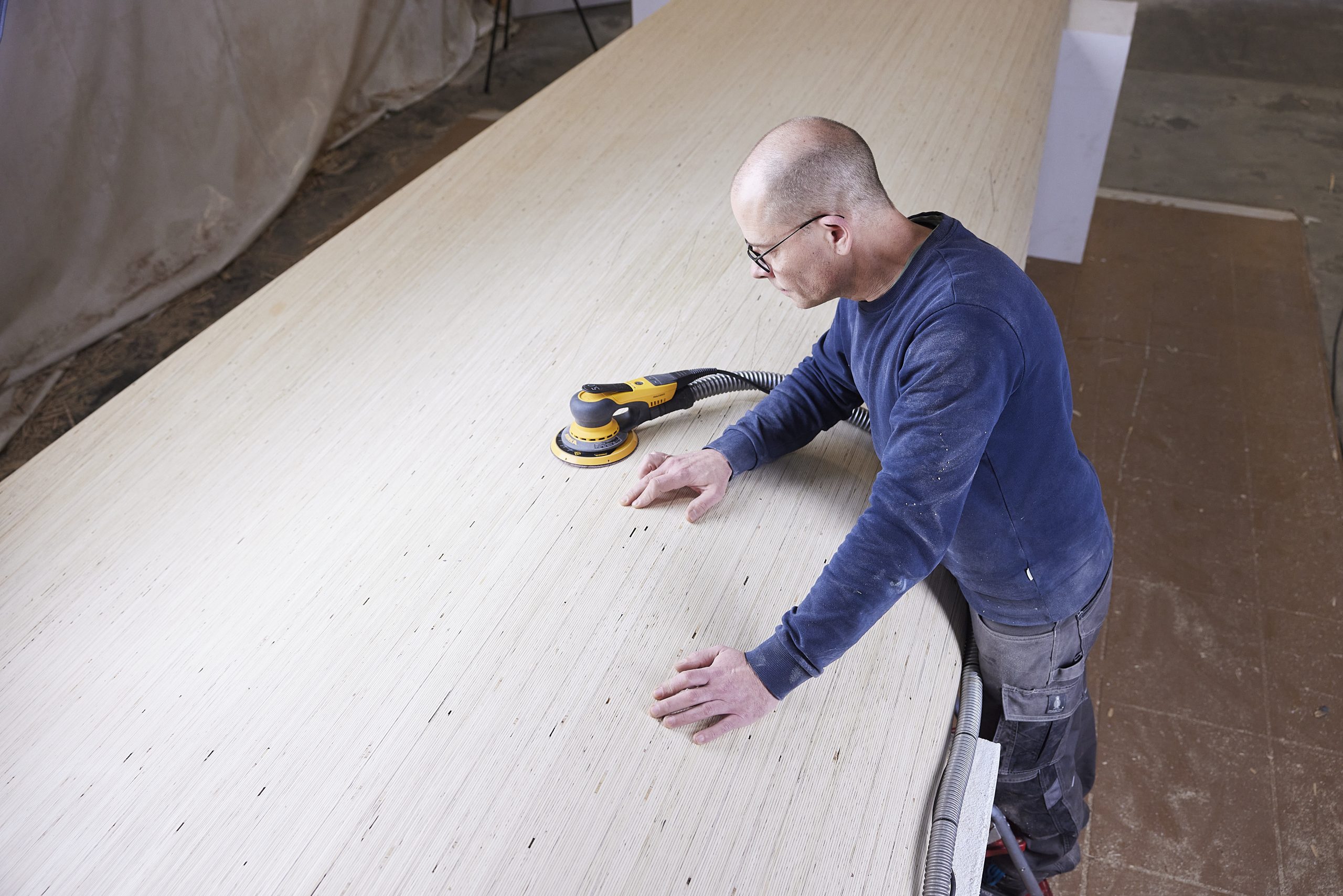The sustainability of materials used to generate electricity through wind power took a step forward today, as a German manufacturer announced a prototype turbine spinning with blades made from wood.
Based at Lichtenfels, near Kassel in central Germany, Voodin Blade Technologies says its lumber blades help turbines reduce CO2 emissions by up to 78% against conventional materials, and cut up to 20% from turbine production costs.
The four year old start-up has attached its innovative structures, 19.3 metres in length, to an existing turbine tower already erected at Breuna, near Kassel. 60- and 80-meter blades are also taking shape on the firm’s drawing board.
Voodin’s boss Tom Siekmann says that while up to 90% of wind turbines are recyclable, conventional blades are currently not. Their usual construction is of fibreglass and carbon fibre sealed with epoxy resin. Though some manufacturers are trying, the materials have proven difficult and expensive to break down.
Holz on to your Hütte! Wir in it, to spin it!
Conventionally sourced turbine blades have a working life of up to 25 years. With the first generation of blades now reaching end of life, towers – sometimes known in Germany as ‘white asparagus’ – need to be re-equipped with replacements.
Voodin makes its wooden blades from laminated veneer lumber, or LVL, a sandwich of many thin layers, glued together.
“At the end of their lifecycle, most blades are buried in the ground or incinerated. This means that, at this pace, we will end up with 50 million tonnes of blade material waste by 2050. With our solution, we want to help green energy truly become as green as possible,” said Siekmann.
Voodin Blade Technology uses CNC – ‘computer numerical control‘ – lathes to create complex 3D shapes. The method allows for a high level of automation, obviating the moulds used in conventional manufacturing. CNC milling also adds flexibility and versatility to designs as they advance to reality.
Increased automation means less labour and so cheaper production. Manufacturing thus does not need to be offshored to countries with lower labour costs, avoiding delay in supply chains. Production can even be achieved closer to the host turbine parks, further trimming back emissions and transport costs.
The company believes wooden blades can even flourish in challenging working offshore, where around 85% of current turbines are located
“According to all our tests, our blades are even more durable than the existing fiberglass blades, as they show fewer fatigue characteristics and are proven to endure all kinds of onshore weather conditions extremely well,” Voodin co-founder Jorge Castillo explained.
Blade on the feather, body between the knees
Traditional German respect for wood, natural materials and forests runs deep in the country’s ecological culture. Former Bundestag MP Josef Göppel, a past advocate for community energy in Angela Merkel’s government, represented a forestry-dependent seat in Bavaria.




